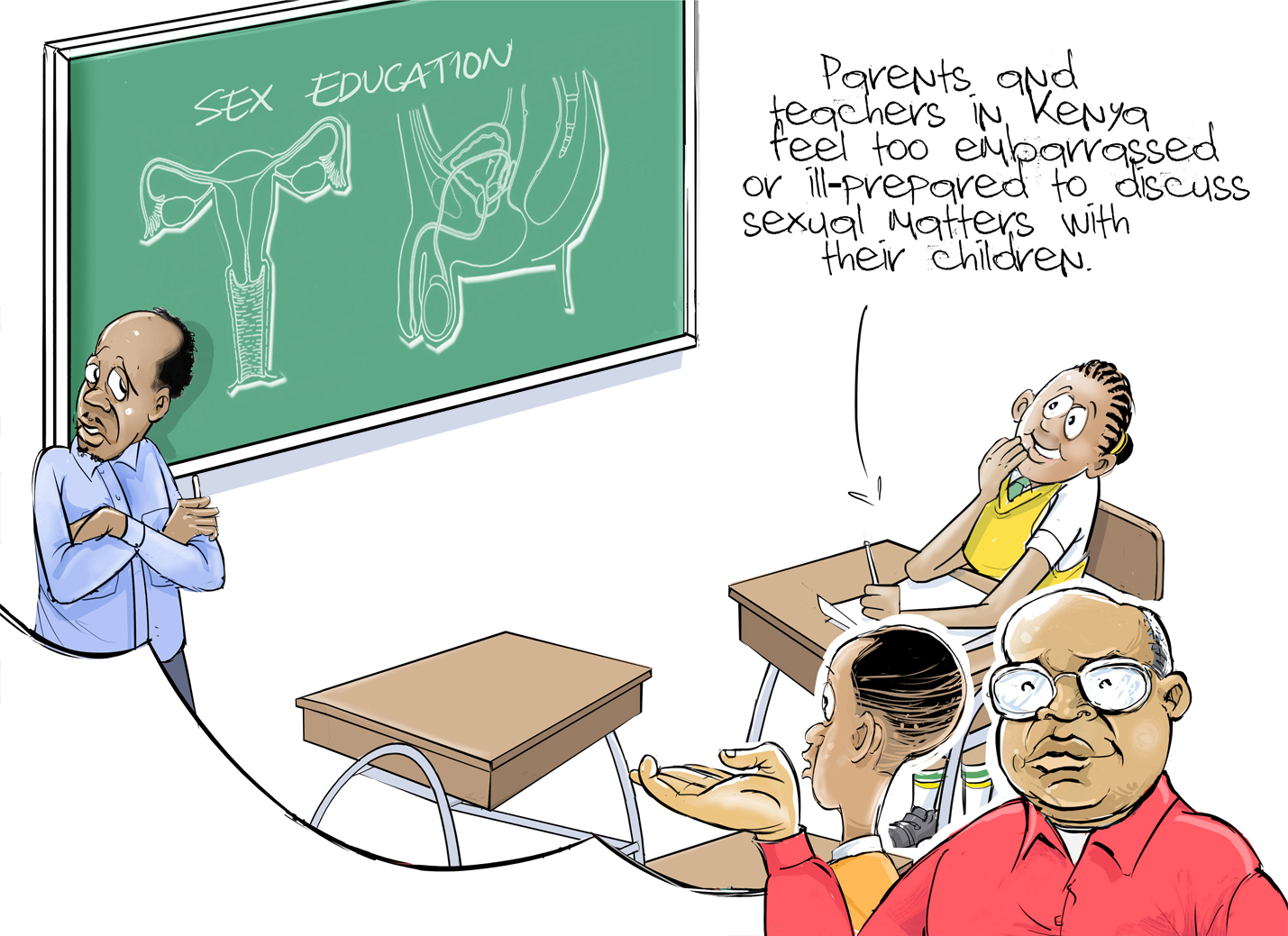

If it were not such a tragic fact of life, I might actually chuckle at the idea that comprehensive sex education remains such a scandalous subject in Kenya. It is not adequately taught in schools, despite the rather obvious reality that people are engaging in sex all the time.
According to the Kenya Demographic and Health Survey (KDHS) of 2022, our very own national sex audit, Kenyan men reportedly average 7.4 sexual partners in their lifetime, while women average 2.3. Make of that arithmetic what you will; I think some people were somewhat economical with the truth.
The KDHS, designed to guide HIV prevention programmes and reproductive health policies, also revealed that unsafe sex is common among 15 to 24-year-olds. It further noted that education (or the lack thereof) is a significant factor linked to risky sexual behaviour.
To cap it off, two out of 10 girls between the ages of 15 and 19 are either pregnant or already mothers.
Yet, despite these sobering facts, our elected leaders and religious authorities remain steadfast in their opposition to comprehensive sex education. They cling to the fantasy that exhortations to “just say no” and the occasional prayer session will hold back the tide.
Religious leaders, who, if you ask me, wield far too much sway over both the public and the politicians, insist that teaching schoolchildren about sex will corrupt them. They argue it would offend “African values”, which is rather rich coming from religious traditions imported wholesale from outside Africa.
Their sermon is predictable: teaching young people about sex leads to promiscuity, experimentation and general moral collapse. In reality, their reluctance has more to do with avoiding awkward conversations about gender equality, sexual diversity and the small matter of consent.
Meanwhile, Kenya continues to grapple with sky-high rates of gender-based violence and shocking numbers of underage pregnancies, some involving girls younger than 14. Surely, even the most devout cleric can see that ignorance is doing more harm than knowledge ever could.
With parents and teachers equally tongue-tied, terrified of using the “S-word” with their children, young Kenyans are left vulnerable to sexually transmitted infections and unplanned pregnancies.
Abstinence-only sex education may sound wholesome on paper, but in practice, it is about as effective as teaching someone to drive by telling them never to get into a car.
The US is a prime example: decades of abstinence-only programmes, pushed by religious leaders and their political allies, have failed to delay sexual activity or reduce risky behaviour.
Worse still, these programmes often dispense half-truths, medically inaccurate advice or outright stigma. Little wonder they have undermined HIV prevention efforts and muddied global health policies.
Parents and teachers in Kenya feel too embarrassed or ill-prepared to discuss sexual matters with their children. This squeamishness is understandable; few of us grew up with open conversations about intimacy. However, this squamishness is also dangerous.
Some argue we should borrow from countries like the Netherlands or Sweden, where sex education begins early, conversations at home are open, and teenage pregnancies and STIs are far less common.
However, we do not need to look quite so far afield. Before missionaries arrived, brandishing Victorian prudishness and muttering darkly about sin, traditional Kenyan communities had their own forms of sex education.
It was a lifelong, culturally integrated process led by family elders, grandparents, aunts and uncles, often in gender-segregated groups. These lessons covered puberty, bodily changes, relationships and responsibilities, without shame or secrecy.
Perhaps the answer lies in blending the best of traditional wisdom with modern sexual education. This means teaching not only biology and contraception but also respect, equality and the importance of consent.
But first, we must ditch this national habit of pretending that sex is not happening. If the KDHS numbers are anything to go by, it clearly is, and in considerable quantity.
So, rather than leaving young people to fumble about in the dark (in every sense), let us provide them with the facts, the tools and the confidence to make safe and informed choices.
After all, ignorance may be bliss, but it is certainly not a method of contraception.














